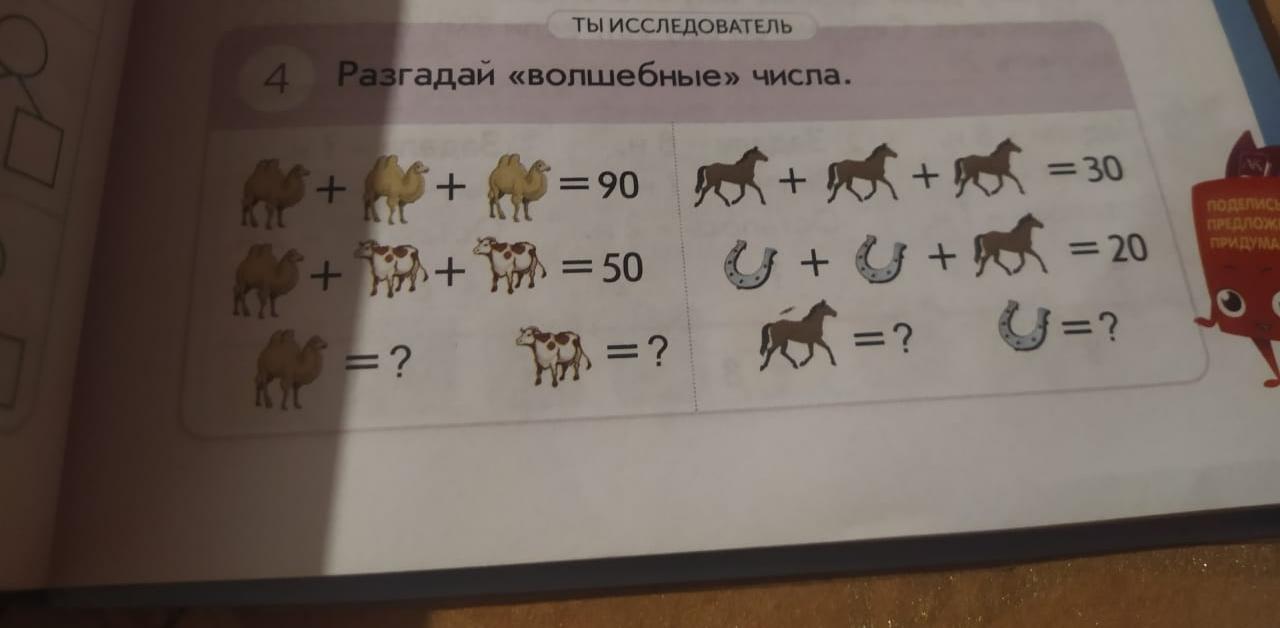Предмет: Математика,
автор: armi84
помогите плиз 1 класс
Нужно решить без деления
Приложения:

akkfrifaer180:
я могу ответить но мне говорят в данный момент нельзя ответить
Ответы
Автор ответа:
0
Первое
Верблюд = 30
30 и 2 коровы = 50
2 коровы = 20
Корова = 10
Второе
Лошадь = 10
2 Оковы + 10 = 20
2 Оковы + 10 = 20
2 Оковы = 10
Окова = 5
Автор ответа:
0
Ответ:
30 + 30 + 30 = 90
30 + 10 + 10 = 50
верблюд - 30
карова - 10
10 + 10 + 10 = 30
5 + 5 + 10 = 20
лощадь - 10
копыце - 5
а как так? в решении ответ выходит совсем по другому
Похожие вопросы
Предмет: Русский язык,
автор: олеся2101
Предмет: Русский язык,
автор: солнце172
Предмет: Русский язык,
автор: Аноним
Предмет: Українська мова,
автор: milaharyd
Предмет: Математика,
автор: kanana12